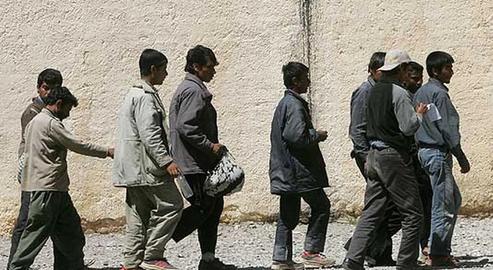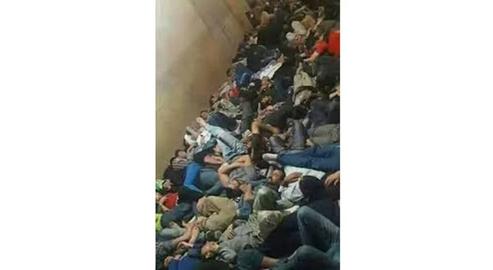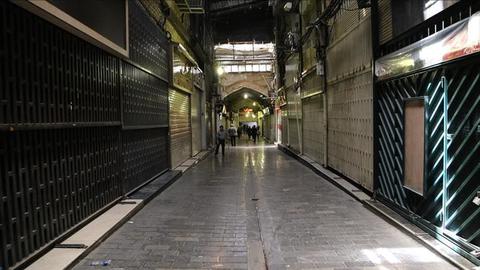In recent years, thousands of Afghan refugees in Iran have been rounded up and sent to holding facilities on the Iran-Afghanistan border for deportation. These camps, which include Askarabad, Sang-e Safid and Tal-e Seeya, have been described as “veritable prisons” by Human Rights Watch. Reports of harassment, violence and torture at the hands of Iranian officials have surfaced from some of the Afghans held there.
Relatively few testimonies have been published about life in these camps. This is, at least in part, because of former detainees’ unwillingness to return to the bitter memories of that time, and their understandable desire to move forward.
For Hassan Hosseini, however, the passage of time has not diminished the shock of his treatment at the hands of Iranian border guards. More than five years after his detention at Askarabad and Sang-e Safid, he tells IranWire: “We were treated like sheep. Worse, even – they give the sheep food and water so they won’t die, but not us.”
In 2015, Hosseini decided flee the poverty and insecurity in his own country. He had planned to travel to Europe, but was stopped on the first leg of the journey and arrested at the Iranian border along with 20 other would-be asylum seekers.
The group were taken to Maku in West Azerbaijan province, where they were beaten by the Iranian border guards and not permitted to go to the toilet. The next day, after a night of insults and brutality, Iranian police sent them to a camp in Urmia and demanded they pay for the transportation.
By the time their bus got to Urmia it was late at night, and other new arrivals were arriving by the coachload. The group stuck together, and the next morning, Hassan and hundreds of other Afghan refugees were taken to Askarabad camp.
On arrival, Hassan tells IranWire, "We were taken to the basement. As we descended the stairs, there was one hall off to our right, and another one in front of us. Each had two rooms within it, with Pakistanis inside. It was so crowded we could barely find a space to sit down. We had no water to drink or wash with; the toilets were always full and sometimes impossible to use. The halls were full of cockroaches."
Those Afghan and Pakistani migrants who did not have a resident permit then had their fingerprints taken. The Afghan arrivals, Hassan said, were starved for hours: “It was 9pm when they finally brought something to eat, which looked like shola (an Afghan rice dish), but they separated us and fed only the Pakistanis.
“At bedtime they emptied out the hall on the left and forced us all into one hall. More than 500 of us had to remain stood upright until the morning. We remained in the camp for two whole days and nights, during which they did not give us even a single piece of dry bread. Their [the Iranian guards’] boss used obscene words, and beat up a teenager and repeatedly threatened to rape them.”
There was a booth at Askarabad selling sandwiches and water, but refugees had to pay for the food themselves and the prices were too high for many to afford. Then, when the time came for them to be moved to Sang-e Safid, detainees were again asked to pay for their transportation. “Some did not have money,” Hassan said. “But the soldiers wouldn’t accept this, and beat them with hoses.”
Hassan says he was “fortunate” to be told he was being returned to Afghanistan after just a few hours at Sang-e Safid. When they came to the border, he said, he said, “someone stopped us and asked us to tell him if we had been harassed. But we’d just got out of hell and couldn’t stand another hour [in the country]; we all said we had no complaints. He took 50,000 tomans [US $2] from each of us and said this was the fee for the municipality.”
Dejected, traumatized and out of pocket, Hassan found himself back in Afghanistan, his dream of reaching Europe dashed and his memory of Iran a living nightmare. Though Hassan’s journey came to a premature end, hundreds of Afghan and Pakistani refugees are still facing the same degrading treatment as he did in these under-reported “prisons” on the border.
Related coverage:
Afghan Migrants are Systematically Brutalized by Iran's Border Police
An Afghan Refugee’s Tale of Escaping from an Iranian Cauldron
Afghans Accuse Iranian Border Guards of Drowning Their Loved Ones
visit the accountability section
In this section of Iran Wire, you can contact the officials and launch your campaign for various problems


























comments